Category Archives for "Self Awareness"
Who am I and what is my soul purpose?
Who am I and what is my soul purpose?
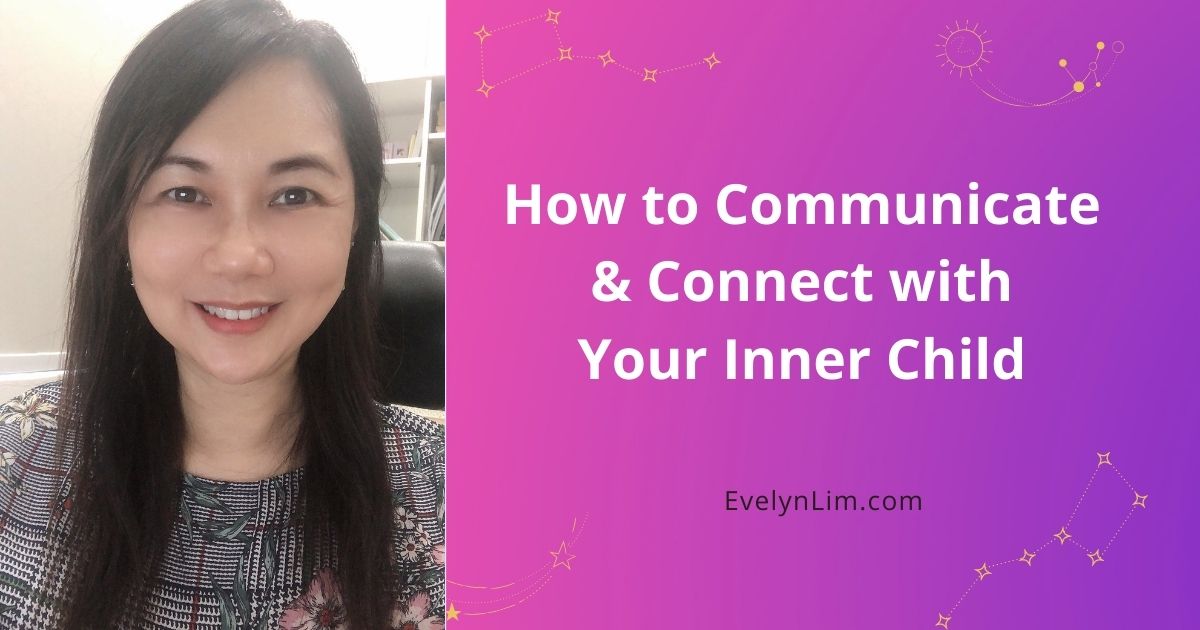
When connecting with our inner child for the first time, we may feel at a loss about what to say or what to do. It’s possible that we feel weird because it is as if we are talking to ourselves. After all, our inner child exists in the mind and no one else can see her (or him) but us. Also, what words can we use to support healing?
According to psychologists, our inner child is described as the hidden part of our personality that is characterised by playfulness, spontaneity, and creativity usually accompanied by anger, hurt, and fear attributable to childhood experiences.
Through our mind’s eye, we connect with our inner self from tracing back to our earliest memory on when we felt the same (negative) way. We get a sense of how old our younger self was and the situation she was in. She may be our 3-year old, 6 year-old or whatever age and she is holding on to hurt, anger, helplessness or any unresolved need. It is when we (our adult self) enter the memory to meet her.
Next, we may encounter the situation of not knowing what to say to her. We have grown in chronological age but we could have left her behind. In fact, I’ve observed how emotional it can be when we do inner child work for the first time. It was that way for me too. The great news is that once we start healing, we gain a sense of well-being like never before.
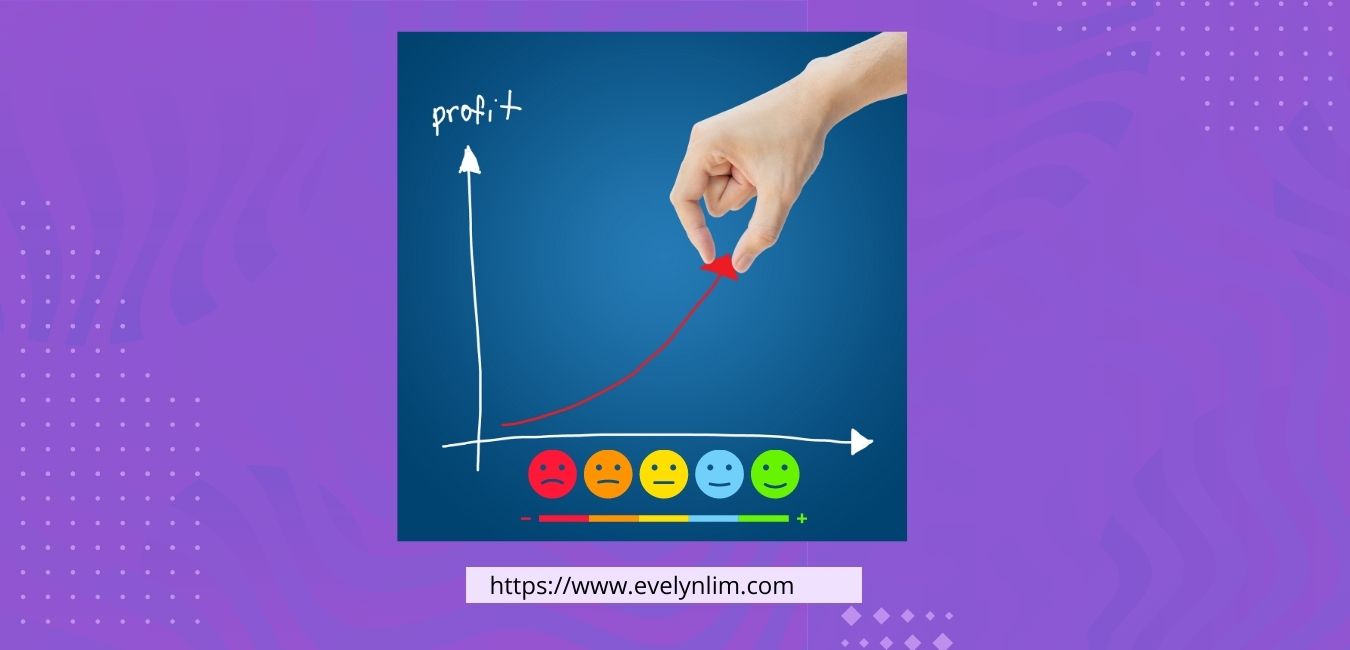
I was helping a client (let’s call her Nellie, not her real name) clarify the ideal client that she’d like to work with, when we discovered that she was having some limiting money blocks about people who are wealthy.
Nellie’s line of work requires her to service the needs of wealthy individuals or at least people with excess funds. If she releases her subconscious blocks, client attraction can potentially happen with greater ease. It will certainly help Nellie to have more clients as the extra income that she gets can go a long way to supporting her family with two young kids. Since her beliefs could be in the way for client attraction and business sales, we proceeded to work on releasing the limiting money blocks.
When I asked Nellie what some of her discomfort was reminding her of, she recalled two childhood incidents when she was 11 years old that had left her feeling lousy, disgusted and ashamed.
Continue reading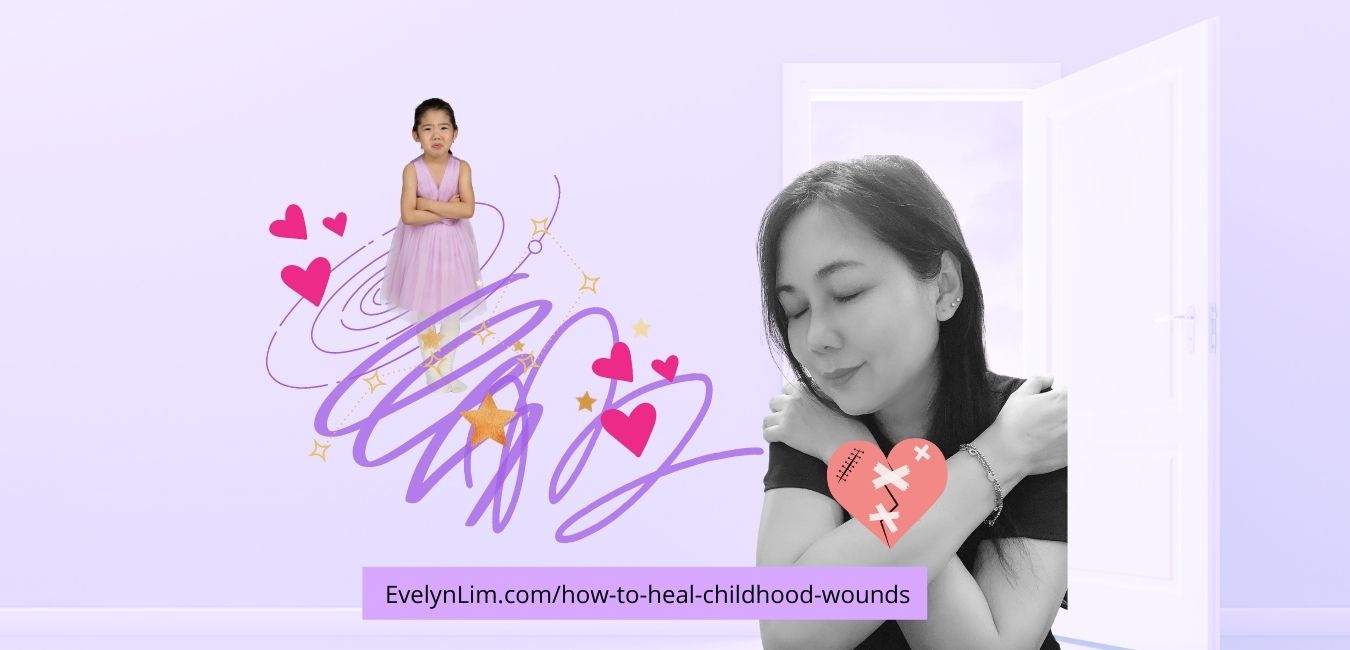
A childhood wound is an emotional pain or a negative belief that a part of us internalised due to a traumatic past event or the relationship we had with our parents or caregivers when we were young.
As I have discovered, unresolved childhood wounds can adversely affect the quality of life in our adult years. Indeed, they have an impact on our personalities, beliefs, career choices, and relationships. We can also be passing on our childhood wounds to the future generations.
Our wounded child is acting up if we often find ourselves in self-sabotage, making poor choices or having over-the-top reactions to triggers. She or he is crying for attention of unhealed emotions. If we choose to ignore our wounded child, we can be stuck for years.
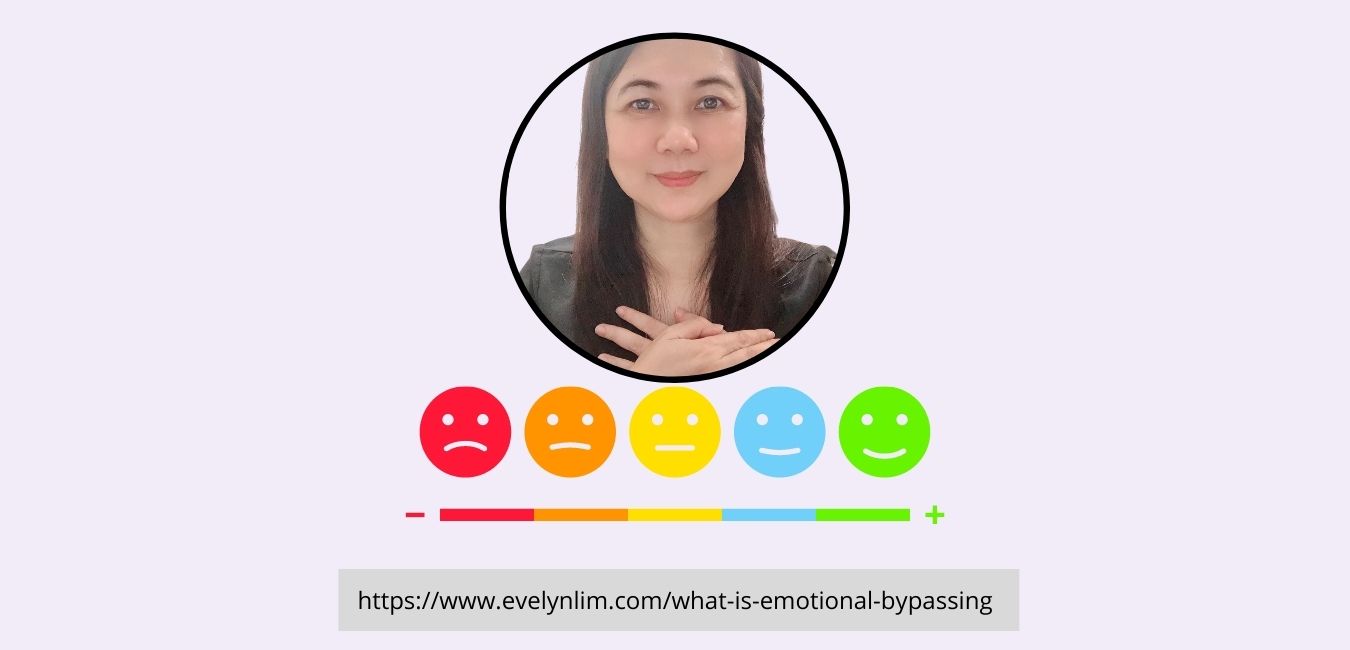
Emotional bypassing happens when we don’t allow ourselves to fully process our negative feelings. Instead, we sweep them under the carpet or we gloss over them by “willing” the mind to think positively. Say, something traumatic happens to us. We don’t face it because we fear feeling worse off. Thus, instead of grieving or upset, we simply put on a brave front and pretend that all is fine.
In another instance, we guilt-trip ourselves for feeling negative when we ought to be grateful. We believe that we have no right to complain about feeling poorly where someone else is at a more disadvantaged situation. And so we stuff our feelings inside.
Emotional bypassing is often referred to as spiritually bypassing. It was the late psychologist John Welwood who coined the term spiritual bypassing to describe what he saw in a Buddhist community. He describes it as the “tendency to use spiritual ideas and practices to sidestep or avoid facing unresolved emotional issues, psychological wounds, and unfinished developmental tasks.” In the practice of non-attachment, many Buddhists deny what they truly feel.
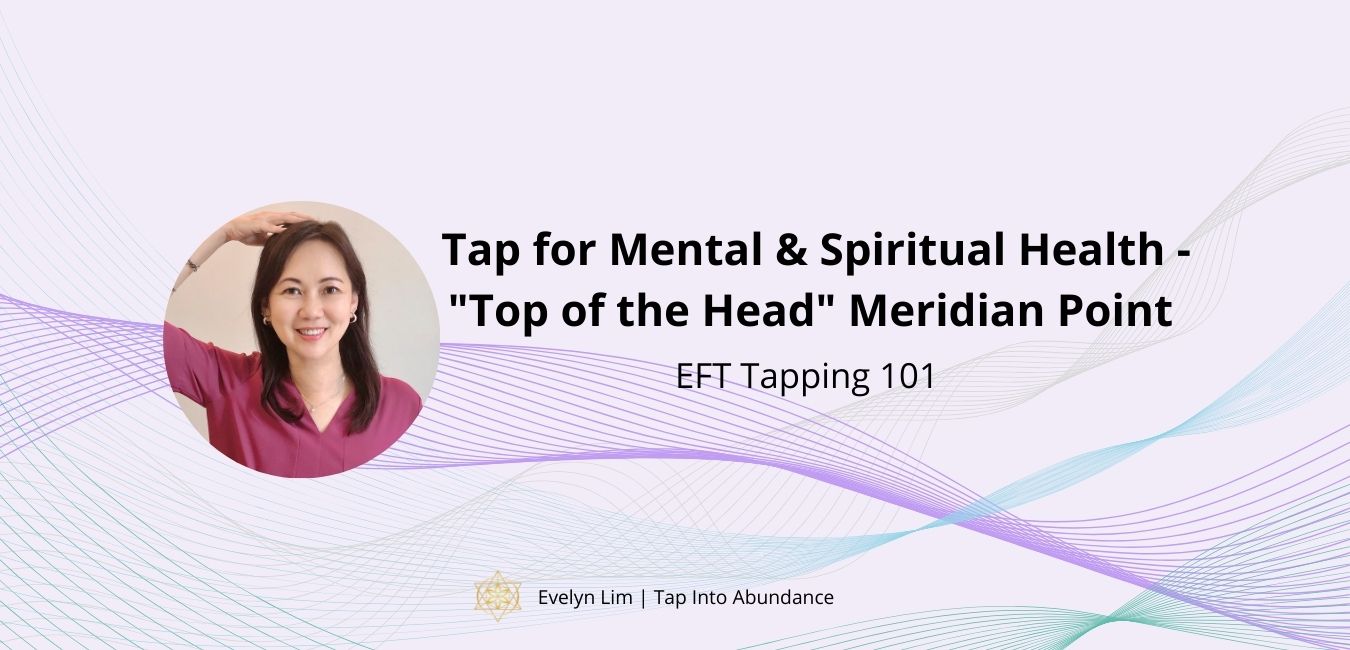
Would like to boost mental and spiritual health?
One way for boosting mental and spiritual health is the Top of the Head or the “Bai-hui” meridian point. The point sits on the crown of our head. The literal Chinese-to-English translation of “Bai-hui” means “the meeting place of the hundreds”. Aptly, it is where all the energies of our body converge and meet.
In TCM, it is often said that “heaven, earth and man are the three powers”. The top of our head is where our human body connects with heaven. It is where the gateway to spirituality resides and and where a lotus flower blossoms in the wake of rising consciousness ((visualise a slow-motion video with the petals unfolding).
The “Bai-hui” meridian point is also the meeting point of all the Yang energy in the body. TCM practitioners use this acupoint in cases of neurological and psychological diseases. By activating this point, it promotes relaxation and mental focus.
Continue reading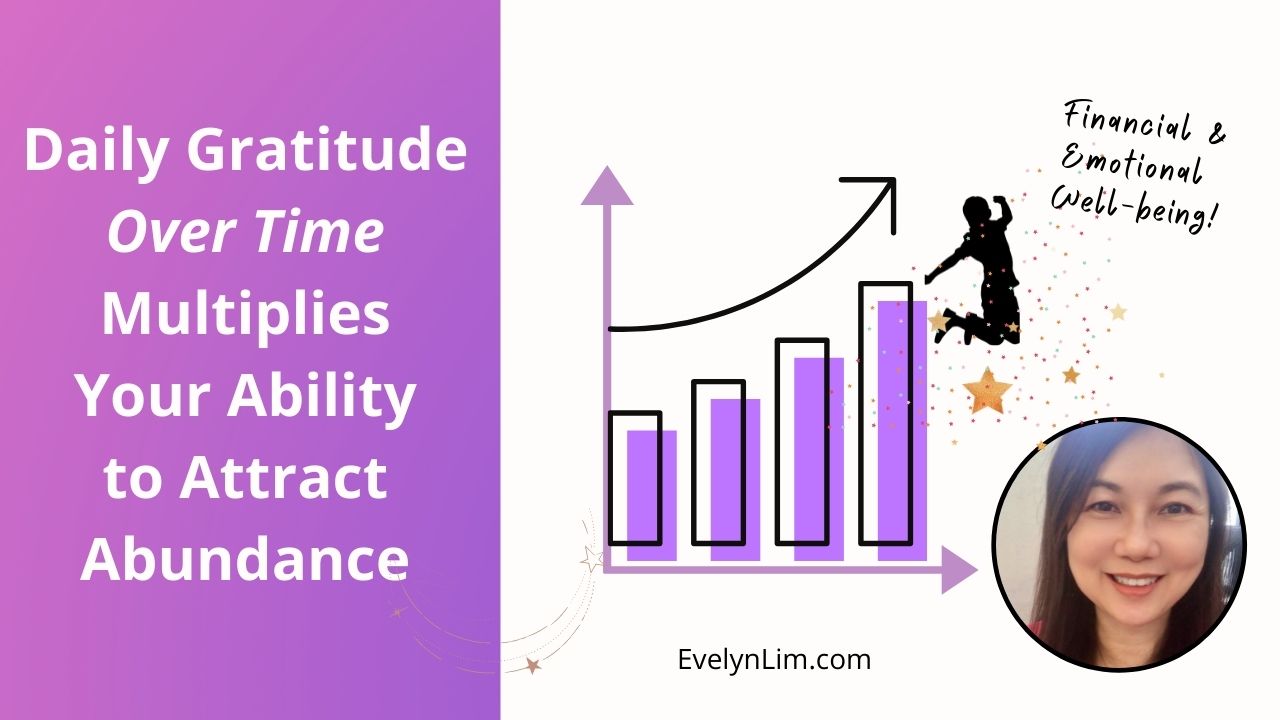
I’d like to invite you to adopt a practice of daily gratitude, if you are interested to shift into an abundance mindset.
Gratitude IS the gateway to abundance.
When we are thankful, our attention is on the blessings that we have in our life. In that moment of expressing our gratitude, we are not focused on any worry, blame, frustration etc.
By virtue of the Law of Attraction, the sustained joy that we feel from reminding ourselves about our blessings sends out a positive vibe to the Universe that helps us to draw more of the same.
Here’s a graphical representation on how a practice of gratitude compounds and brings you dividends in terms of financial well-being. Obviously, while we can start with a 10-day or a 21-day challenge, it is best that we can make the practice very much a part of our life going forward. 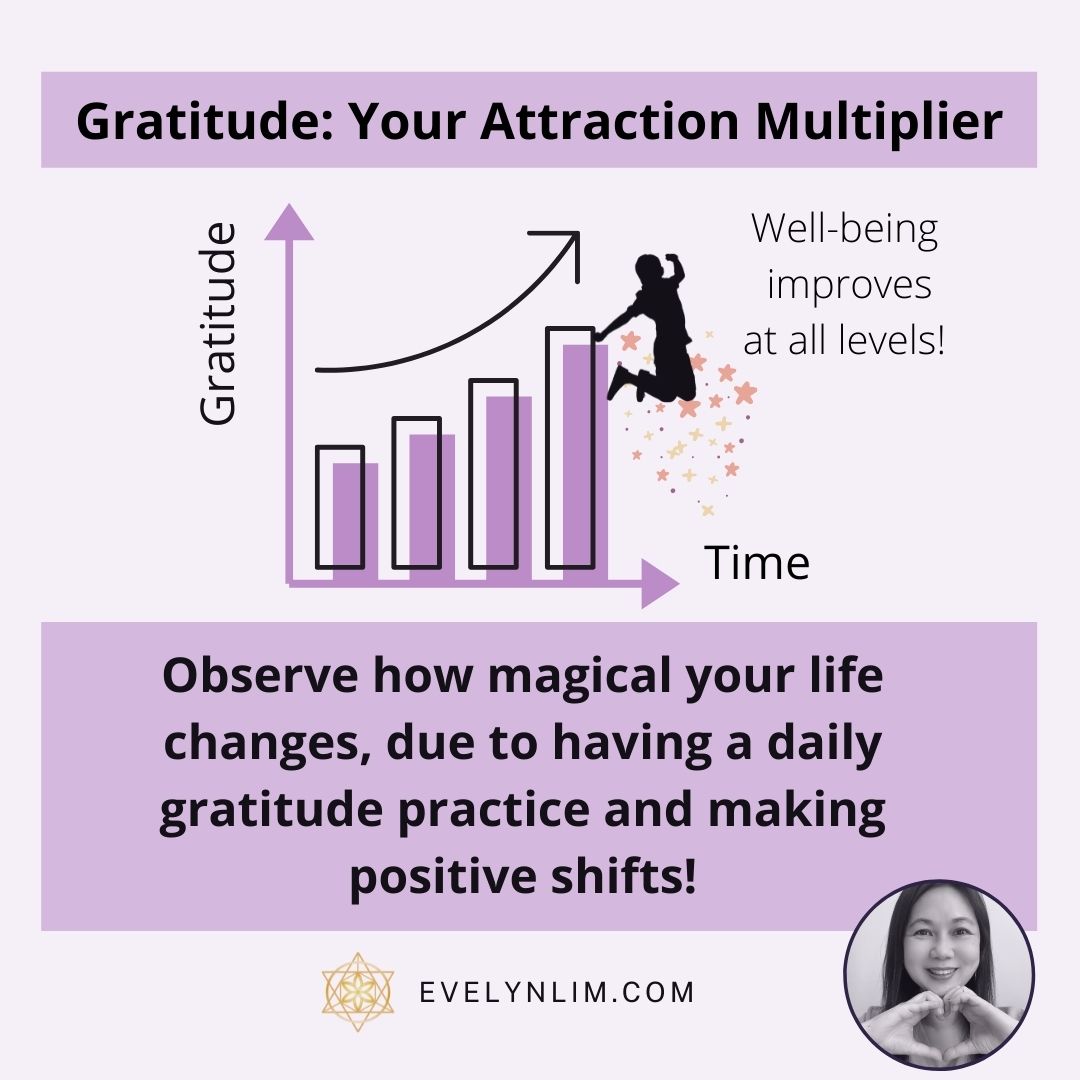

Felicia (not her real name) and I had worked together on releasing her fear of abandonment.
If we find ourselves getting angry, frustrated, anxious or upset easily, we may want to ask ourselves why we are triggered. Some of us would get badly triggered when we perceive that we have been abandoned or rejected even though in reality, it may not be necessarily true. However, this can hurt our relationships, work life and well-being. It was exactly what had happened to Felicia.

A big questions is: How can we build self-confidence, as an introvert, in a world that seems to favour the extroverts?
Some clients of mine who are introverts seem to believe that their quiet personality is some kind of death sentence and that they are already at a disadvantage.
Well, it is true that those who are extroverted or have an outgoing personality tend to attract friends easily. They are fun, bright and great to hang out with. Generally, they appear to be confident about themselves. Society is also inclined to believe that those who are extroverted make natural leaders. But does this mean that those who are introverted have no or less chance to be successful?
Well, I’d like to share from my perspective as someone with an introverted personality but still desiring to connect with others socially. Also, I’d like to correct some myths on introverts. I also like to believe that the world has enough space for introverts to thrive as much as the extroverts or anyone in between.
Most introverts are quiet. They can feel as if they “don’t belong”. Quietness can seem to be something out of place in a world that is noisy. In fact, introversion is often perceived as something undesirable or a sign of weakness. From not speaking up, our silence is interpreted as being shy, having a lack of confidence and as having nothing valuable to contribute.
As kids, we may be taught that there is something fundamentally wrong with having an introverted or quiet personality. We were not the popular ones in school for sure. I recall feeling rather hurt when I was labelled as a “quiet kid”, which caused me to retreat even more into silence.
Recently, while attending a dinner-cum-networking gathering, someone suddenly pointed out that I have been really quiet. For a moment, I could feel as if all eyes were on me. Till then, I was occupied with listening to what the more talkative ones had to share. Put in the spot, I felt as if I had to defend myself for being quiet.
Keanu Reeves has much to say about being a quiet person…
I hate when people ask me: “Why are you so quiet?” Because I am. That’s how I function. I don’t ask others, “Why do you talk so much?” It’s rude.
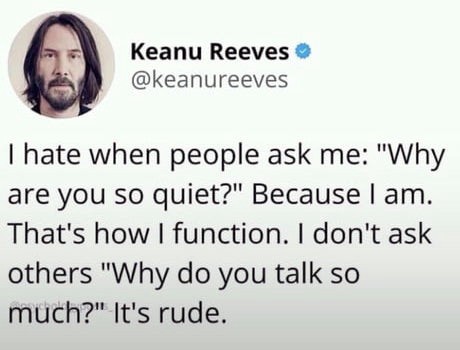

Do you often feel unwanted and lonely because you believe that “I don’t belong”?
Do you often feel left out in social circles?
Over time, anyone who constantly feels unwanted and experiences “not belonging” can start to feel depressed and disconnected. The heart senses the separation. A belief of “not belonging” can impact our ability to form close friendships or relationships with our spouse and loved ones.
We experience “not belonging” because we can’t seem to fit in. It may be that we are not comfortable in our own skin, to begin with. Or that we are afraid of being hurt because we hold the fear of rejection. The conviction that we are not wanted arises when we find out that friends are leaving us out from their social circles or are not asking us out.
Many of my clients who are spiritual seekers confess to feeling the same way. They feel like an “alien” on this planet especially when their beliefs, ideas and values differ from commonly held ones. Holding on to disconnection, they question what their purpose in life is.
Then, there are the introverts and empaths. Introverts need plenty of “me” space and alone time whereas empaths find it necessary to protect themselves. Within this group, those who keep to themselves excessively can also develop the belief of “being unwanted” especially where they have decided not to engage. They go through the constant conflict of not knowing what they want.
All these can contribute to the perception of “not belonging”.

We tend to pay little regard to any form of emotional neglect that we’ve experienced as a child. After all, it is not as if that we had faced a real survival threat. Nor were we physically abandoned or abused either. So it would seem unthinkable to even imagine that there can be any sort of trauma related to emotional neglect.
Therein lies where the problem is.
Because it did not cross our minds that a lack of self-esteem or our struggles with anxiety and mental health could be contributed by the emotional neglect that we had experienced when we were young, we don’t seek help or therapy for our issues. In fact, we usually perceive that seeking help from professionals as only warranted for major traumas. Sure, problems caused by emotional neglect may be less serious than say, a case of torture or abuse. However, emotional neglect can also cause problematic wounds when we bury them deep in our psyche.
So, here’s what I eventually discovered…
Emotional neglect can inflict invisible wounds, even in the absence of any physical signs of abuse.